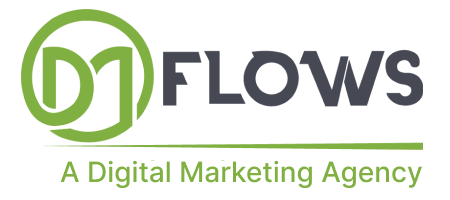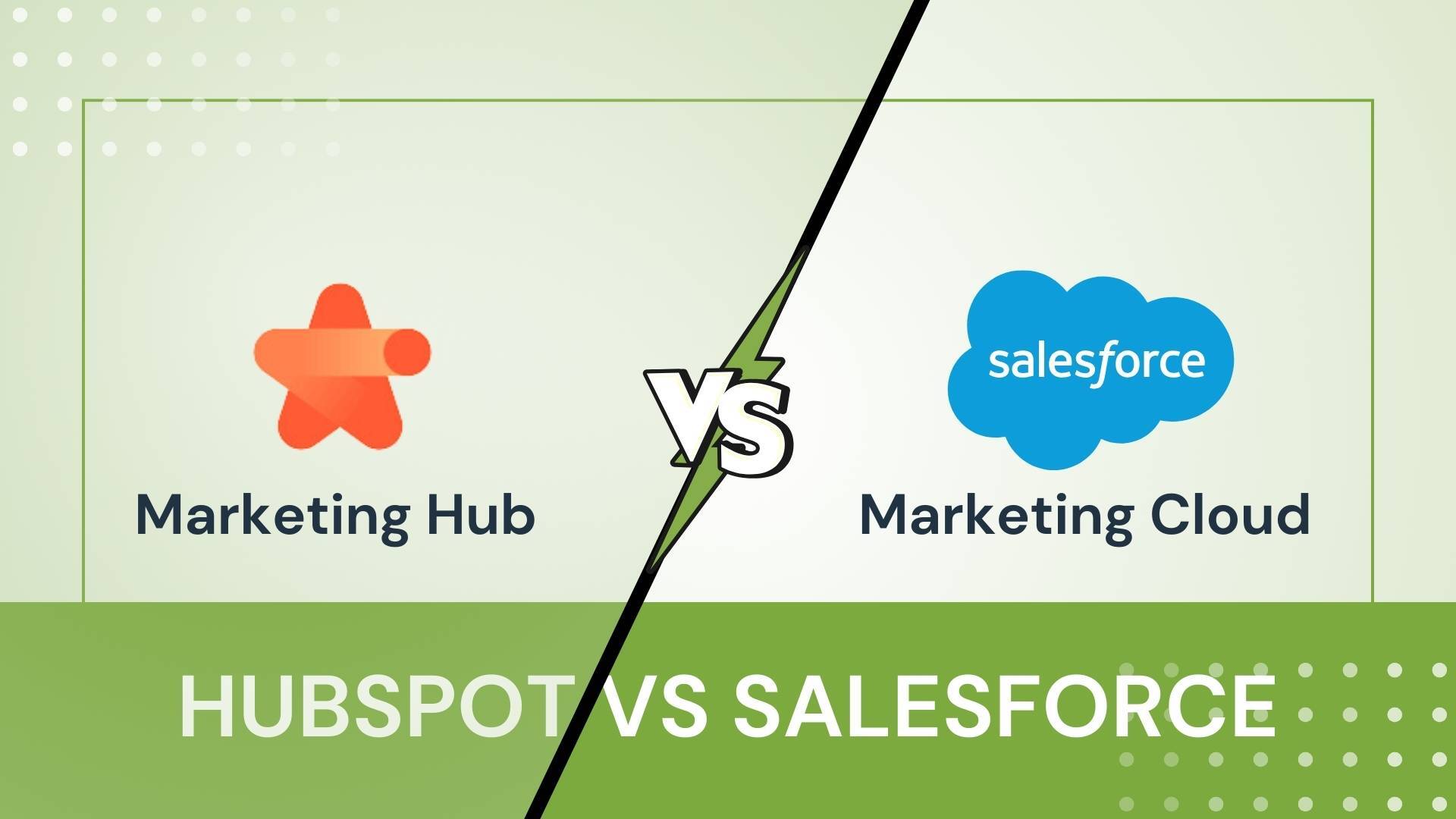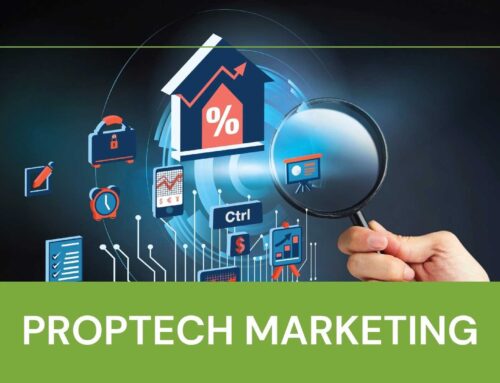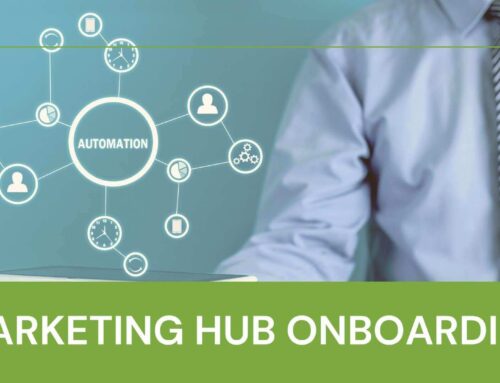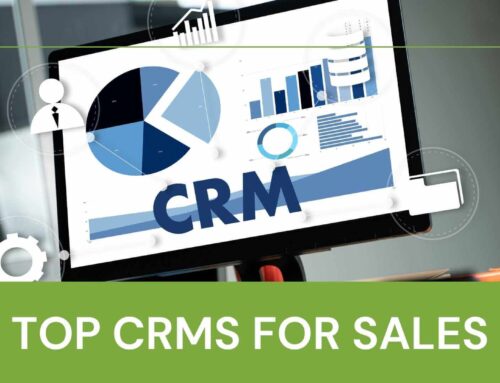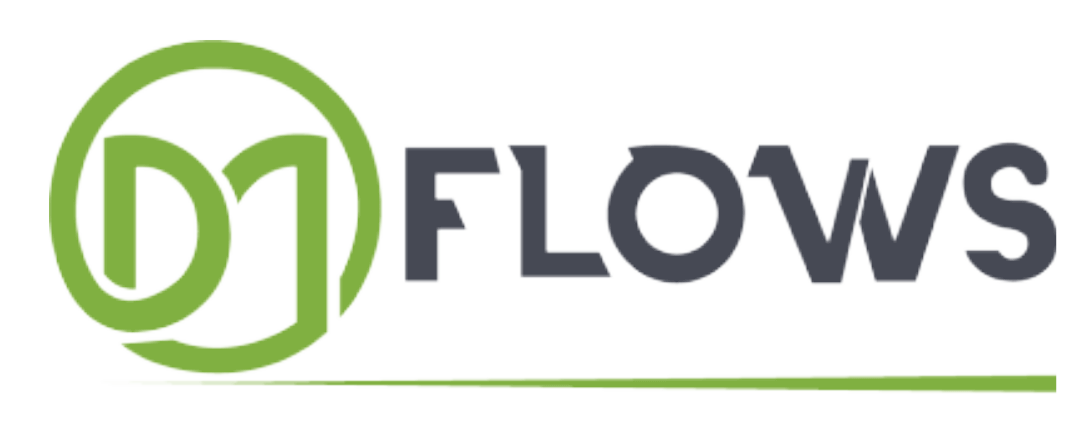HubSpot Marketing Hub vs SalesForce Marketing Cloud
HubSpot Marketing Hub and SalesForce Marketing Cloud offer solutions to businesses with problems like how to mount effective sales campaigns and marketing campaigns with a particular targeted audience.
Both solutions offer robust features to help businesses attract, nurture, and convert leads, but each is suited to different business needs and user types. While both platforms enable marketing teams to automate workflows, create targeted campaigns, and integrate deeply with their respective CRMs, they vary significantly in their functionality, ease of use, pricing, and overall focus.
Choosing which one is right for your business can be confusing. So, we’ll compare both products to make it easier for businesses to decide.
Side-by-side Comparison of Marketing Hub and SalesForce
| Feature/Category | HubSpot Marketing Hub | Salesforce Marketing Cloud |
|---|---|---|
| Target Audience | Primarily SMBs and mid-market businesses looking for an all-in-one, user-friendly platform | Large enterprises with complex, data-driven marketing needs requiring extensive customization |
| Ease of Use | Known for its intuitive interface; accessible to non-technical users | Steep learning curve, more challenging for new users; requires technical expertise for full utilization |
| Setup & Onboarding | Quick and straightforward, with low technical requirements | Longer setup and complex configurations, often requires developer support |
| Customization | Moderate customization options; API options are more limited than Salesforce | Extensive customization with robust API integrations, allowing tailored solutions |
| Integration | Strong integrations within HubSpot’s ecosystem and popular third-party tools (like Google Ads) | Highly customizable integrations, especially within the Salesforce ecosystem, and with numerous other platforms |
| Pricing | Free tier available; paid plans start around $50/month, making it affordable for smaller businesses | No free tier; plans start at $25/user/month, but advanced features significantly increase costs |
| Automation & Workflows | User-friendly visual workflow editor; supports lead nurturing, email automation, and task automation | Complex Journey Builder supports highly personalized and multi-channel customer journeys but is less intuitive |
| Email Marketing | Robust email tools with drag-and-drop editor; suitable for basic and mid-tier email marketing needs | Advanced email personalization and segmentation for detailed customer engagement |
| Campaign Management | Simplified tools for multi-channel campaigns, ideal for small to mid-sized marketing teams | Advanced campaign management across email, social, and mobile, suitable for large enterprises |
| AI & Personalization | Includes AI-driven insights for content recommendations and lead scoring | Advanced Einstein AI for predictive analytics and deep personalization capabilities |
| Analytics & Reporting | Basic to mid-level analytics; ideal for small to mid-sized businesses needing standard reporting | Highly advanced analytics with Einstein AI for predictive insights and complex reporting |
| Social Media Integration | Allows social publishing and engagement tracking, suited for small to medium-sized campaigns | Extensive social media tools for tracking, engagement, and advanced campaign management |
| Ad Management | Integrates with Google, LinkedIn, and Facebook ads; suitable for basic ad management | Robust ad management with advanced targeting and optimization options for large campaigns |
| Customer Support | Offers email, chat, and phone support; response times vary by plan | Premium support packages, often requiring additional fees for dedicated support |
| Mobile Optimization | Mobile-friendly with responsive templates for email and web content | Advanced mobile features, including SMS and push notifications, with additional configuration options |
| Scalability | Well-suited for SMBs and mid-market; some limitations for very large enterprises | Highly scalable; ideal for large enterprises with complex marketing operations |
| Best for | Businesses seeking an affordable, user-friendly marketing suite with inbound focus | Enterprises needing sophisticated marketing automation, deep analytics, and multi-channel support |
What is Marketing Hub Best For?
HubSpot Marketing Hub is best for the end-to-end marketing process. Everything from capturing a client data at an enterprise level, aligning contacts within that environment, having an entire enterprise view grouping those enterprise entities together and then launching a concerted sales or marketing campaign based on that notion.
It also has a really good upload feature so that if you have files in csv format it can actually upload those files fairly quickly.
More details on Why HubSpot is the Best CRM
What is SalesForce Marketing Cloud Best For?
SalesForce Marketing Cloud is probably the best for in terms of data analytics with its acquisition of other data analytics providers like Tableau. Salesforce Marketing Cloud has really shot ahead in terms of providing you the analytics that you need post-launch of a sales and marketing campaign. They are probably the preeminent in terms of capturing client level data and actually transferring it all the way through to seeing how many click-throughs there have been, how many conversions there have been so on and so forth so in that way it is extremely powerful.
How easy it is to get started with Marketing Hub or SalesForce
Getting started with each of these products is not easy, Both of them require a lot of upfront engineering and that’s quite rightly because it is a open software that requires you to actually populate it with the data that you need.
Salesforce Cloud is a little bit more manual than HubSpot Marketing Hub. because of HubSpot’s ability to upload csv files makes it a lot easier to actually load up the client data as well as it gives a number of errors that were being experienced when the upload was taking place so that i could actually just run through and correct those errors so again in a nutshell neither of them are easy just because of the type of application that they are however we found hubspot marketing hub a little bit easier to actually to get started with.
Conclusion: Which Platform is Right for You?
Choosing between HubSpot Marketing Hub and Salesforce Account Engagement largely depends on the size of your business, your marketing goals, and how deeply integrated you are (or plan to be) with your CRM.
- HubSpot Marketing Hub is an excellent choice for small to medium-sized businesses that need an easy-to-use, all-in-one marketing automation platform. It’s great for companies focused on inbound marketing, lead nurturing, and content-driven strategies, particularly if you want a system that’s quick to deploy and simple to manage.
- Salesforce Account Engagement is better suited for larger organizations with complex marketing needs, particularly those already using Salesforce CRM. If you require advanced customization, sophisticated reporting, and high-level automation, and if your company is focused on B2B marketing or account-based strategies, then Salesforce Account Engagement is likely the better choice.
Ultimately, both platforms offer powerful tools with the ease of Sales and Marketing Alignment, but the best option will depend on your company’s specific requirements, size, and growth trajectory. Both offer advanced features and deep CRM integration, but HubSpot is easy to use than Salesforce.
